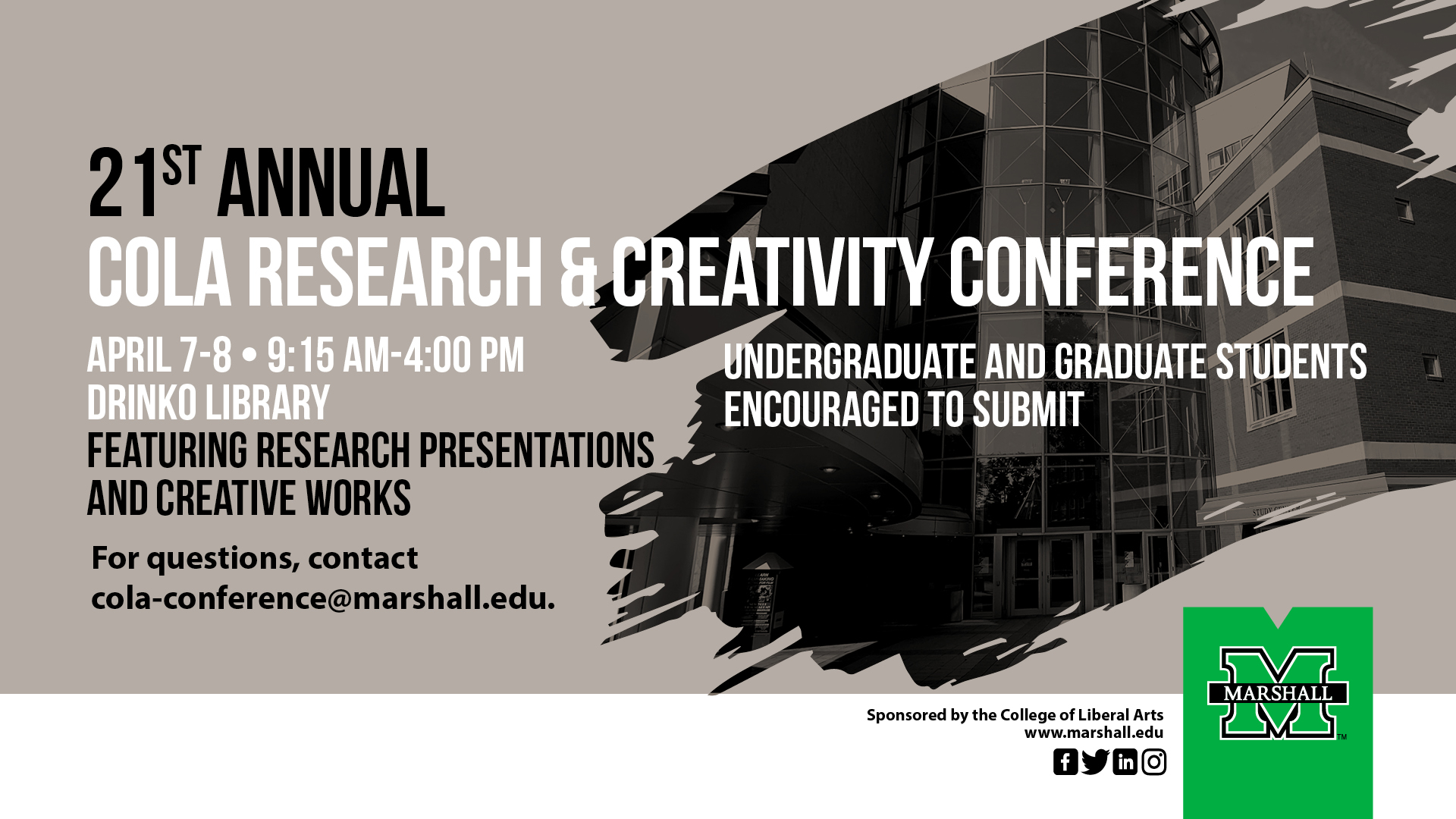From Gorgeous George to Golden Lovers: An Examination of Queer Representation in Professional Wrestling
Document Type
Panel Presentation
Keywords
Professional Wrestling, Gender, Sexuality
Biography
Sam Mace is a graduate student at Marshall University. In 2020 they graduated with a Bachelor’s degree in literary studies and creative writing, and their graduate research focuses primarily on film and professional wrestling. They have written for the West Virginia Department of Tourism as well as several entertainment websites, and presented at the Midwest Pop Culture Conference. Before pursuing their Master’s Degree, Sam spent two years training as a professional wrestler and now their goal is to share their appreciation for the genre as a complex storytelling medium.
Major
English
Advisor for this project
Dr. Walter Squire
Abstract
Professional wrestling is an intricate, multi-modal storytelling medium which builds narratives around heroic babyfaces and villainous heels. But because the genre is highly performative and embedded in cispatriarchal representations of masculinity, it has a deeply complex relationship with gender and sexuality. Over the years, pro-wrestling has catered to hegemonic masculinity through its depictions of male power fantasies, objectification of female talent, and vilification of queer and gender-nonconforming characters. In this essay I provide an analysis of some of the most prominent queer(-coded) characters throughout the history of pro-wrestling, showing how its narratives have successfully and unsuccessfully represented the LGBTQ+ community. Ultimately, I argue that the best way to resist systemic homophobia and transphobia in pro-wrestling is by showcasing diverse and complex queer characters.
From Gorgeous George to Golden Lovers: An Examination of Queer Representation in Professional Wrestling
Professional wrestling is an intricate, multi-modal storytelling medium which builds narratives around heroic babyfaces and villainous heels. But because the genre is highly performative and embedded in cispatriarchal representations of masculinity, it has a deeply complex relationship with gender and sexuality. Over the years, pro-wrestling has catered to hegemonic masculinity through its depictions of male power fantasies, objectification of female talent, and vilification of queer and gender-nonconforming characters. In this essay I provide an analysis of some of the most prominent queer(-coded) characters throughout the history of pro-wrestling, showing how its narratives have successfully and unsuccessfully represented the LGBTQ+ community. Ultimately, I argue that the best way to resist systemic homophobia and transphobia in pro-wrestling is by showcasing diverse and complex queer characters.



